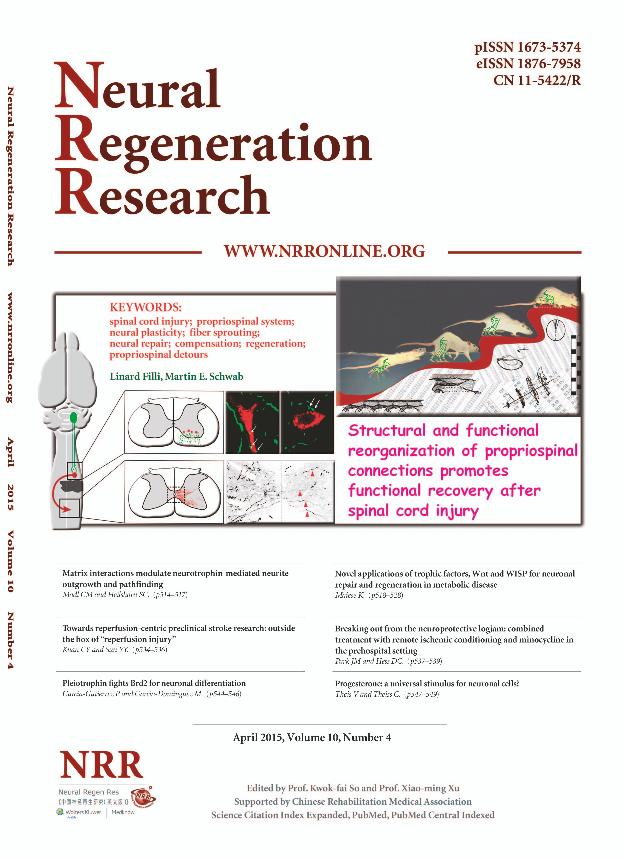Artículo
Oleanolic acid: a promising neuroprotective agent for cerebral ischemia
Fecha de publicación:
04/2015
Editorial:
Shenyang Editorial Dept Neural Regeneration Res
Revista:
Neural Regeneration Research
ISSN:
1673-5374
Idioma:
Inglés
Tipo de recurso:
Artículo publicado
Clasificación temática:
Resumen
Stroke is considered the most common and severely disabling neurologicaldisease. It is one of the leading causes of death after heartdisease and cancer, causing 10% deaths worldwide and involvingrisk factors such as smoking, obesity and nutritional disbalance.Disability affects 75% of stroke survivors through severe mentaland/or physical impairment depending on the affected brain area(Go et al., 2014).Stroke treatment is limited to thrombolysis and antiplatelettherapy with a tissue plasminogen activator (tPA), which is onlyuseful if administered within 3 hours of the appearance of earlysymptoms. This therapy is only used in 1?2% stroke patients andhas, indeed, limited clinical success, as it does not protect neuronsfrom the hypoxic insult. Therefore, the development and evaluationof new drugs to reduce the life-threatening effects of strokeand hypoxia might prove extremely fruitful.Stroke is produced by a decrease in blood supply due to differenttypes of alterations in the brain blood vessels, which cause cerebralhypoxia/ischemia. In turn, the hypoxic damage produces severalchanges in gene expression patterns in brain tissue cells (neuronsand glial cells). Rapid thrombolysis is effective in protecting theinjured ischemic core, although preventing the pathological featuresthat produce neuronal death requires the development of newtreatments and the implementation of a dual therapy combiningthe disruption of the clot and the preservation of neuronal function.In this respect, many preclinical studies have been successfulin finding neuroprotective agents, but subsequent clinical trialshave rendered disappointing results.Inflammation is one of the distinctive events in stroke, whilemicroglial cells are the predominant inflammatory effectors inbrain. Reactive astrocytosis and the formation of a glial scar in theboundary zone of the ischemic core are also critical events whichcan produce both positive and negative consequences.
Palabras clave:
OLEANOIC ACID
,
NEUROPROTECTION
Archivos asociados
Licencia
Identificadores
Colecciones
Articulos(IBCN)
Articulos de INST.DE BIOLO.CEL.Y NEURCS."PROF.E.DE ROBERTIS"
Articulos de INST.DE BIOLO.CEL.Y NEURCS."PROF.E.DE ROBERTIS"
Citación
Caltana, Laura Romina; Nieto, Maria Luisa; Brusco, Herminia Alicia; Oleanolic acid: a promising neuroprotective agent for cerebral ischemia; Shenyang Editorial Dept Neural Regeneration Res; Neural Regeneration Research; 10; 4; 4-2015; 540-541
Compartir
Altmétricas




